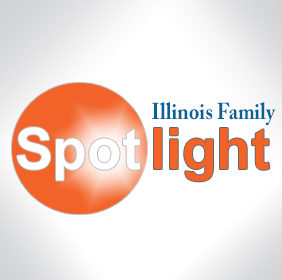
In a 7-2 decision the U.S. Supreme Court decided in favor of Colorado baker Jack Phillips who was sued by a homosexual couple, Charlie Craig and Dave Mullins, for declining to bake a wedding cake for their pseudo-wedding. While the decision is, indeed, a victory, a careful reading should dampen the celebration.
Phillips was appealing a decision reached by the Colorado Civil Rights Commission—a decision suffused with unmitigated religious hostility condemned by Justice Anthony Kennedy writing for the majority:
Phillips was entitled to a neutral and respectful consideration of his claims in all the circumstances of the case. That consideration was compromised, however, by the Commission’s treatment of Phillips’ case, which showed elements of a clear and impermissible hostility toward the sincere religious beliefs motivating his objection. As the record shows, some of the commissioners at the Commission’s formal, public hearings endorsed the view that religious beliefs cannot legitimately be carried into the public sphere or commercial domain, disparaged Phillips’ faith as despicable and characterized it as merely rhetorical, and compared his invocation of his sincerely held religious beliefs to defenses of slavery and the Holocaust…. The comments thus cast doubt on the fairness and impartiality of the Commission’s adjudication of Phillips’ case.
It was refreshing to hear Justice Kennedy express proper condemnation of religious hostility and the anti-constitutional view that religious beliefs are prohibited from the public square, but what followed from Kennedy was troubling:
When it comes to weddings, it can be assumed that a member of the clergy who objects to gay marriage on moral and religious grounds could not be compelled to perform the ceremony without denial of his or her right to the free exercise of religion. This refusal would be well understood in our constitutional order as an exercise of religion, an exercise that gay persons could recognize and accept without serious diminishment to their own dignity and worth. Yet if that exception were not confined, then a long list of persons who provide goods and services for marriages and weddings might refuse to do so for gay persons, thus resulting in a community-wide stigma inconsistent with the history and dynamics of civil rights laws that ensure equal access to goods, services, and public accommodations….
Petitioners conceded… that if a baker refused to sell any goods or any cakes for gay weddings, that would be a different matter and the State would have a strong case under this Court’s precedents that this would be a denial of goods and services that went beyond any protected rights of a baker who offers goods and services to the general public and is subject to a neutrally applied and generally applicable public accommodations law….
Any decision in favor of the baker would have to be sufficiently constrained, lest all purveyors of goods and services who object to gay marriages for moral and religious reasons in effect be allowed to put up signs saying “no goods or services will be sold if they will be used for gay marriages,” something that would impose a serious stigma on gay persons.
Constitutional lawyer and member of the Bars of the Supreme Court of the United States and the Supreme Court of Illinois, Joseph A. Morris, warns that Kennedy’s narrowing of the argument to a “question of procedure,” offers little judicial “light to free speech or free exercise jurisprudence”:
Justice Kennedy pretty much telegraphs that if the Commission had only been more circumspect in its language, and less obviously insistent on expressing disdain for people whose religious views do not accept the ‘‘dignity” of homosexual conduct or the “sanctity” of same-sex marriages, its decision would have been sustained instead of reversed…. [I]t is a convenient roadmap for the Colorado Civil Rights Commission (and other would-be thought police) to have their way the next time. Commissioners will just have to restrain their own self-expression a bit while they go about their business of suppressing the wrong, and compelling the correct, expression of others.
It’s troubling enough that Kennedy believes the government has the authority to prohibit acts because some individuals may perceive such acts as diminishing their sense of “dignity and worth,” but it’s worse still that Kennedy claims to know what those acts are and are not.
The great and powerful Kennedy proclaims that the refusal of church leaders to officiate at same-sex faux-weddings is hunky dory because he knows that such a refusal would leave homosexuals’ sense of dignity and worth intact. But what if homosexuals claim otherwise?
Evidently, Kennedy also knows that if lay Christians seek to live their lives—including their professional lives—in accordance with their religious convictions, the subjective, internal psychological health of homosexuals will be damaged. If the refusal of Christians to supply goods or services to homosexuals for their “weddings” damages their psyches sufficiently to warrant forcing Christians to contravene their own religious beliefs, what other acts would Kennedy mandate or prohibit in the service of homosexual self-esteem?
Many—this writer included—believe that no theologically orthodox Christian should be required to provide goods or services for an event that violates their religious beliefs. Whether they are engaged in creative arts or own companies that provide linens and chairs, Christians should be allowed to decline to provide goods or services for an event that the God they serve detests.
The Court compared the Colorado Civil Rights Commission’s decision in Phillips’ case to the commission’s decision in the case of Mr. William Jack who had visited three bakeries to request cakes with religious messages about homosexuality:
He requested two cakes made to resemble an open Bible. He also requested that each cake be decorated with Biblical verses. [He] requested that one of the cakes include an image of two groomsmen, holding hands, with a red ‘X’ over the image. On one cake, he requested [on] one side[,] . . . ‘God hates sin. Psalm 45:7’ and on the opposite side of the cake ‘Homosexuality is a detestable sin. Leviticus 18:22.’ On the second cake, [the one] with the image of the two groomsmen covered by a red ‘X’ [Jack] requested [these words]: ‘God loves sinners’ and on the other side ‘While we were yet sinners Christ died for us. Romans 5:8.’
All three bakeries refused to make such cakes for Mr. Jack, so he sued and lost. Kennedy—who has a habit of contradicting himself—argued the following regarding the difference in the decision in favor of the three bakeries by the Colorado Civil Rights Commission as compared to its decision against baker Jack Phillips:
A principled rationale for the difference in treatment of these two instances cannot be based on the government’s own assessment of offensiveness…. [I]t is not, as the Court has repeatedly held, the role of the State or its officials to prescribe what shall be offensive…. The Colorado court’s attempt to account for the difference in treatment elevates one view of what is offensive over another and itself sends a signal of official disapproval of Phillips’ religious beliefs.
But don’t Kennedy’s references to “stigma,” “dignity,” and “worth” in his earlier advocacy of constraining “purveyors of goods and service” from refusing to serve homosexual “weddings” elevate one view of what is offensive over another? When Kennedy suggests that a refusal to serve a same-sex “wedding” is a stigmatizing act that diminishes the “dignity” and “worth” of homosexuals, isn’t he stigmatizing the theological beliefs that impel refusals?
In their dissent, Justices Ruth Bader Ginsburg and Sonia Sotomayor argue that because the three bakeries that refused to bake cakes with biblical messages condemning same-sex marriage had previously made cakes with Christian symbols, they couldn’t be accused of discriminating based on religion. As further evidence that there was no religious discrimination at play in the three bakeries’ refusal, Ginsburg and Sotomayor argue that they “would have refused to make a cake with Jack’s requested message for any customer, regardless of his or her religion.”
The fact that the three bakeries were willing to bake cakes with religious symbols proves nothing about whether they were motivated to refuse Mr. Jack’s request by religious hostility. The use of Christian symbols has no necessary connection to religious devotion. Sometimes the use of religious imagery is a sign of religious intolerance, bigotry, mockery, and hostility. The recent Met Gala whose theme was religious imagery saw irreligious Hollywood starlets awash in religious imagery. Further, one can approve of some religious beliefs while detesting others.
The customer, Mr. Jack, was religious, he was motivated by his faith, and his requested message was distinctly religious. The refusal of the three bakeries to sell a cake with a religious message to a religious person motivated by his religion may, indeed, constitute religious discrimination.
The fact too that non-religious people may hold a view that Mr. Jack holds and which the three bakeries deemed “demeaning” does not make his view non-religious—or objectively demeaning.
Jack Phillips had on many occasions sold baked goods to homosexuals, so based on Ginsburg and Sotomayor’s reasoning, how could he be accused of discriminating based on “sexual orientation”? Well, here’s how they attempt to undermine the hard evidence that Phillips did not discriminate based on sexual orientation: They argue that the fact that the three bakeries would sell all their products to Christians was relevant because it shows their motivation for refusing Mr. Jack’s cake message was not religious bigotry but, rather, the “demeaning message.” In contrast, the fact that Mr. Phillips would sell almost all products to homosexuals was not relevant because the one product he wouldn’t sell (i.e., wedding cakes) proved he was motivated “solely by the identity of the customer requesting it.”
Whoa, Nelly.
What constitutes a “demeaning” act or message is subjective. Many people of faith would argue that a same-sex faux-marriage is itself demeaning to the celebrants and that participating in, facilitating, or serving such an event is demeaning. If same-sex faux-marriage is, in reality, abhorrent to God, saying so cannot be demeaning, though hearing that claim may be unpleasant.
Ginsburg and Sotomayor assert that the refusals of three bakeries to make cakes with biblical messages were not religiously discriminatory in that it was the offending message to which they objected—not the religious identity of the customer. But calling a biblical message “offensive” or “demeaning” is ipso facto evidence of religious discrimination. It’s not one’s religious “identity” per se that the First Amendment protects but one’s religious free exercise which for Christians is a holistic, comprehensive endeavor that encompasses, among other things, their work and their publicly expressed messages.
As an aside, isn’t calling Mr. Jack’s biblical views on marriage “demeaning” tantamount to calling Mr. Phillips’ views on marriage “despicable” as did one of Colorado’s Civil Rights commissioners whom Kennedy chastised?
Ginsburg and Sotomayor strain futilely to establish a moral distinction between what the three bakeries refused to do and what Mr. Phillips refused to do:
When a couple contacts a bakery for a wedding cake, the product they are seeking is a cake celebrating their wedding—not a cake celebrating heterosexual weddings or same-sex weddings—and that is the service Craig and Mullins were denied.
Ginsburg and Sotomayor make clear that Craig and Mullins were asking Mr. Phillips to supply a product for a particular event—a celebration of their union—which is a union that God detests. Phillips’ refusal was based on the type of event he was asked to serve—not the sexual identity of the customer.
Again, it was not the “identities” (i.e., sexual predilections) of the homosexuals that formed the basis of Phillips’ refusal. He would have refused to bake a wedding cake for a celebration of a homosexual faux-wedding regardless of the sexual orientation of the customer requesting it. If the heterosexual parents of a homosexual couple were the customers seeking to purchase a cake for their sons’ homosexual “wedding,” Phillips would have refused. He wasn’t refusing to serve homosexuals. He was refusing to use his business to serve a type of event that violates fundamental tenets of Christianity.
All cakes are not created identical. Just because all cakes are made with flour, butter, and sugar does not mean all cakes are the same kind of cakes. What makes a cake a wedding cake are not its ingredients or its design. What makes a cake a wedding cake (or birthday, anniversary, or Independence Day cake) is the type of event for which it is made.
For people of faith, a wedding is something. It has a nature that the law cannot change. A same-sex union may now be recognized in law as a “marriage,” but for theologically orthodox Christians, it is not and never can be a marriage, and the ceremony solemnizing it can never be a wedding. A U.S. Supreme Court decision can no more turn an intrinsically non-marital union into a marriage than it could turn a whole person into 3/5 a person. Craig and Mullins asked Jack Phillips to supply a product for a type of event for which he has never supplied a product: an anti-wedding.
Mr. Morris brings to the foreground yet another important question ignored in this case and rarely discussed in the public square of whether public accommodation laws violate the constitutional principle regarding freedom of association (or assembly):
The Colorado Anti-Discrimination Act, which supplied the basis for the same-sex couple’s complaint and the Colorado Commission’s decision, is a rather extensive model of the genre, prohibiting the denial of a “public accommodation” to any individual or group on the basis of “disability, race, creed, color, sex, sexual orientation, marital status, national origin, or ancestry.”
In a society characterized by freedom of association one would expect that people would be free to associate with, including do business with, anyone they chose, for any reason: Or not to do so, also for any reason.
We long ago agreed to abridge the freedom of association in order to prohibit discrimination on the basis of race and previous condition of servitude, in order to eliminate “the badges and incidents of slavery.” How long freedom of association must be abridged to achieve that end is an open question, clearly one of prudence confided to our national and State legislatures.
Over the years and decades, however, the discussion of when that end has been accomplished, and how to tell that it has been accomplished, has been abandoned, and has given way, instead, to an ever-expanding new list of categories in the service of which the freedom of association is to be further abridged.
In a healthy society one would think that the pressure would be toward finding a path to end the special restrictions needed to redress a grave and pervasive legal wrong (slavery) with persistent legal consequences (state-compelled segregation) and, in due course, restore the full and unfettered freedom of association—a condition in which government does not care and does not monitor with whom one associates and why, and does not compel private association for any reason.
Instead, our society now features incessant competitions by aggrieved groups to achieve highly-desired designations as “victim classes” to bring them within an ever-expanding list of categories of people with whom private association may be compelled and, thus, the freedom of association be ever further abridged.
As I say, nary a mention by the Court of Assembly / Free Association, although that, even more than the Religion and Speech clauses, is the freedom that is at stake in this case.
The anorexic thinness of Kennedy’s decision portends the future bloatedness of the ravenous “progressive” beast that gorges on constitutionally protected rights, often in the service of sexual deviance.
Listen to this article read by Laurie:
IFI works diligently to serve the Christian community in Illinois with email alerts, video reports, pastors’ breakfasts, special forums, worldview conferences and cultural commentaries. We do not accept government funds nor do we run those aggravating popup ads to generate funds. We depend solely on the support of readers like you.
If you appreciate the work and ministry of IFI, please consider a tax-deductible donation to sustain our endeavors. We need your support, and are deeply grateful for those who stand with.
























